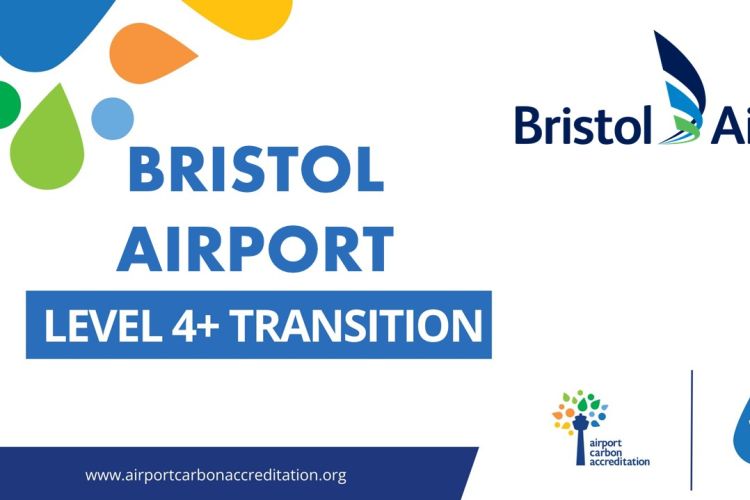Bristol Airport becomes first UK regional airport to reach Level 4+ in international carbon accreditation scheme
- Like
- Digg
- Del
- Tumblr
- VKontakte
- Buffer
- Love This
- Odnoklassniki
- Meneame
- Blogger
- Amazon
- Yahoo Mail
- Gmail
- AOL
- Newsvine
- HackerNews
- Evernote
- MySpace
- Mail.ru
- Viadeo
- Line
- Comments
- Yummly
- SMS
- Viber
- Telegram
- Subscribe
- Skype
- Facebook Messenger
- Kakao
- LiveJournal
- Yammer
- Edgar
- Fintel
- Mix
- Instapaper
- Copy Link
Posted: 28 December 2023 | | No comments yet
The airport has a target of net zero operations by 2030 and a new interim target of cutting direct emissions by 73% by 2027, relative to 2019 levels.


Credit: Bristol Airport
Bristol Airport has been independently accredited as achieving ‘Level 4+ Transition’, becoming the first regional airport in the UK to reach this level of the only global carbon management certification programme for airports.
The ‘Level 4+’ status recognises that an airport has a long-term carbon management strategy for absolute emissions reductions, actively drives third parties towards delivering emissions reductions, and that the residual carbon emissions over which the airport has control, are being offset using internationally recognised offsets.
The accreditation is awarded by the Airports Council International (ACI). Their Airport Carbon Accreditation Scheme is the only institutionally endorsed carbon management certification standard for airports. The accreditation is externally verified in two stages, the first by an independent, qualified assessor and secondly by ACI against the requirements of the scheme.
Bristol Airport reduced CO2 per passenger from its direct emissions by 61% from 2014 to 2022. This has been achieved through measures including greater energy efficiency in buildings, the roll-out of electric vehicles, and increasing on-site renewable energy generation.
The airport has a target of net zero operations by 2030 and a new interim target of cutting direct emissions by 73% by 2027, relative to 2019 levels. Achieving this will require the removal of gas heating and it being replaced with air source heat pumps, converting more diesel vehicles to electric, and all runway lighting to become LED.
Non-direct emissions (scope 3) are a larger proportion of the Airport’s emissions, and include flights and surface access. Bristol Airport is working with aerospace partners and others in the region to accelerate the delivery of zero emissions, hydrogen-powered flight by 2035. The region’s first ‘EV filling station’ will be built at the Airport to encourage passengers to move to electric vehicles. Bristol Airport continue to make £250,000 available each year through its Aviation Carbon Transition (ACT) programme, that supports research and innovation into cutting scope 3 emissions.
Clare Hennessey, Director of Planning and Sustainability, said: “Reaching Level 4+ is an important and independent recognition of our progress getting to net zero carbon operations by 2030. The accreditation comes just as we’ve launched our new Sustainability Strategy, which sets out clear goals and targets for the next five years. Our strategy sets a benchmark for all to see and to which we will report our progress.”
Related topics
Airport Carbon Accreditation (ACA), Sustainability, Sustainable development


















